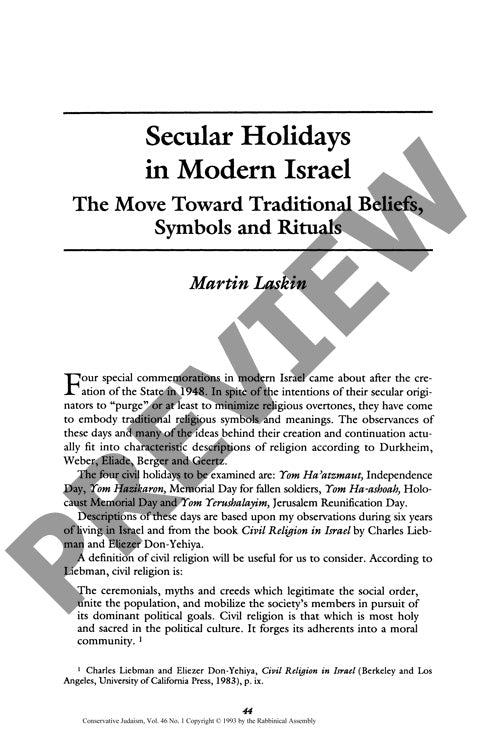Secular Holidays in Modern Israel the Mo
Couldn't load pickup availability
Israel's secular national holidays have undergone a striking religious transformation, evolving from deliberately secular Zionist celebrations into ceremonies rich with traditional Jewish symbolism and sacred meaning. Through extensive ethnographic fieldwork spanning six years in Israel, this research traces how Independence Day, Memorial Day, Holocaust Memorial Day, and Jerusalem Reunification Day shifted across three distinct periods: Zionist Socialism (1919-1945), Statism (1948-1956), and the New Civil Religion (1956-present). Drawing on theoretical frameworks from Durkheim, Weber, Eliade, Berger, and Geertz, the analysis reveals how attempts to establish purely secular commemorations ultimately gave way to hybrid celebrations incorporating traditional religious elements. The methodology combines participant observation with analysis of civil religious practices, ceremonies, and symbolic meanings. Neither Zionist Socialism nor Statism succeeded in replacing traditional Judaism with secular alternatives. Instead, the New Civil Religion emerged as a synthesis, embracing sacred time, sacred space, pilgrimage, and transcendent symbolism along a civil/traditional religious continuum. This transformation reflects both existential human needs and demographic shifts in Israeli society, as purely secular civil religion proved insufficient for providing spiritual meaning and continuity beyond state institutions.

More Information
-
Physical Description
-
Publication Information
Published 1993
ISBN
-
Publication Credits
Martin Laskin

